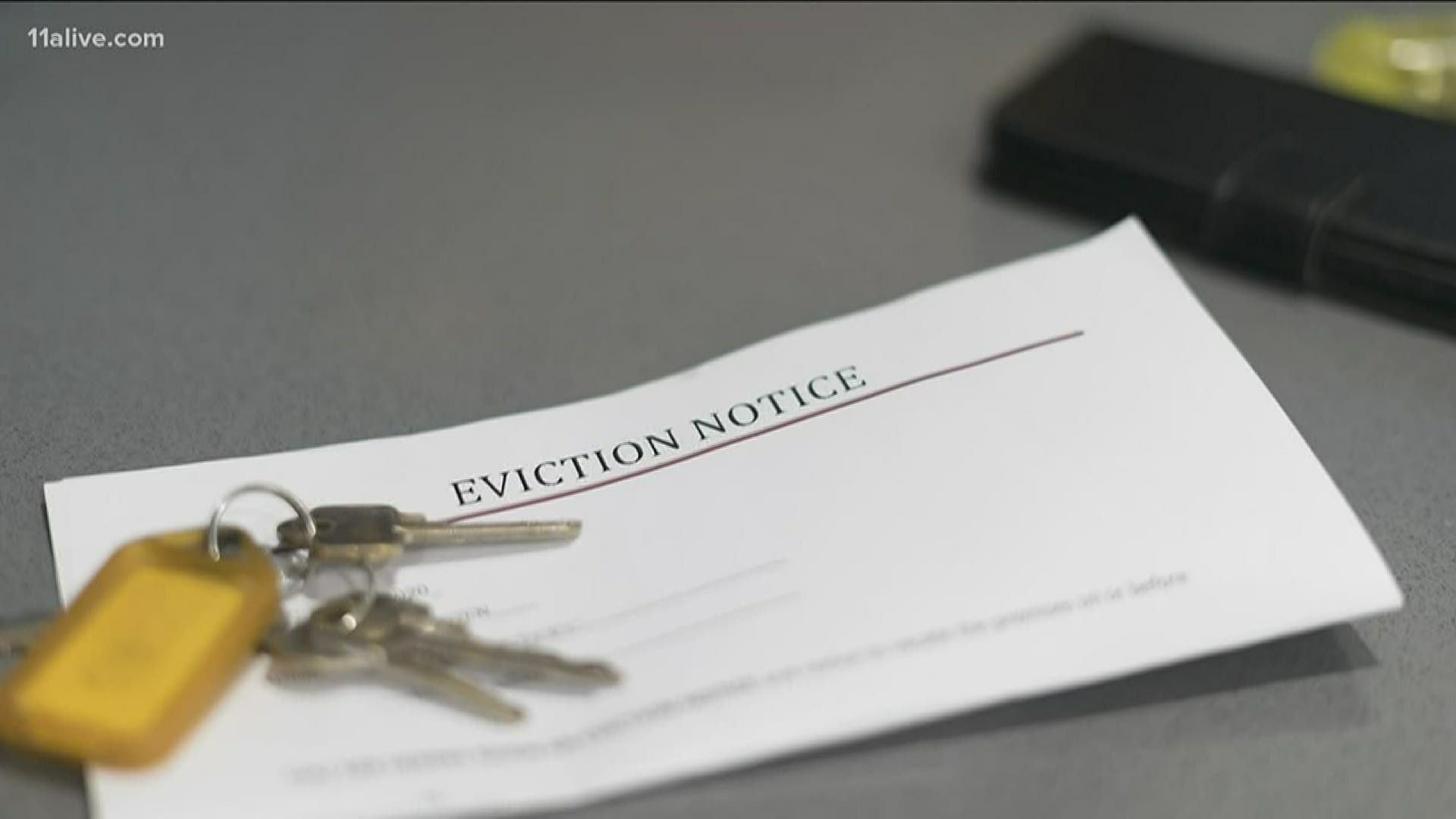ATLANTA — A congressional report examining evictions during the pandemic highlights how larger, corporate landlords were responsible for a staggering proportion of evictions that occurred in metro Atlanta despite a CDC moratorium that was introduced at the beginning of the pandemic.
The report was issued last month by the U.S. House Select Subcommittee on the Coronavirus Crisis.
It mentions Atlanta specifically as a market where large landlord operators flouted the CDC moratorium on evictions. It describes the "machine-like eviction filing system" that one company operating predominantly around Atlanta, Ventron, employed.
The report - titled "Examining Pandemic Evictions: A Report on Abuses by Four Corporate Landlords During the Coronavirus Crisis" - defines such larger corporate landlords as those with more than 1,000 units in their holdings.
It says such landlords were responsible for "as much as 80% in the Atlanta area... of all pandemic eviction filings following the issuance of the CDC eviction moratorium."
That was according to data from April 2021 - the moratorium remained in place for more than a year, until a Supreme Court ruling that ended it in August 2021.
That 80% figure is significantly disproportionate to the actual ownership rates of these large landlords - "half of all rental units units in the United States are owned by individuals (who generally only own one or two properties)," the report notes.
In Atlanta, the report highlighted Ventron Management. The report notes the company has 8,000 apartments across 26 properties in Georgia, Florida and Alabama, with most located in metro Atlanta.
Between March 2020 and July 2021, according to the report, Ventron filed 4,401 eviction actions.
Ventron, along with two companies, engaged in eviction filing practices that were described as "concerning even if not unlawful."
The thresholds for eviction Ventron and another company used were described as "very low, with more than 90% of Ventron's eviction filings involving tenants who were only one month behind on rent."
"Even as state and local governments worked to set up emergency programs to distribute $46 billion in federal rental assistance funds, these companies continued to file thousands of eviction actions," the report states.
As a Federal Reserve Bank of Atlanta report from last year noted, these evictions often fell on Black neighborhoods or other neighborhoods where people of color were in the majority.
That report found the census tracts with the highest eviction filing rates in Fulton, DeKalb, Gwinnett, Cobb and Clayton counties from April-mid September 2020, all were at least 77% composed of Black, Indigenous or other people of color (BIPOC) residents. That figure was more than 90% in seven of those census tracts.
The companies in some cases actively worked against residents even if they had applied for rental assistance.
In the case of Ventron and two other companies, "each had a policy or practice of filing eviction actions on tenants that had pending rental assistance applications."
These policies were pursued even as the companies themselves received millions in federal pandemic aid money. The report states Ventron took a $2.57 million Paycheck Protection Program loan in April 2020 - with the government eventually forgiving $2.51 million of it.
"These companies’ policies and practices of not accepting rental assistance in some situations or filing eviction actions against tenants with pending rental assistance applications were not unlawful, but their actions put many tenants at risk of homelessness weeks or months before they may have obtained assistance that may have kept them in their homes," the report states.
In many cases, while the CDC moratorium did not ban all evictions the aggressive eviction practices of Ventron and three other companies resulted in "eviction cases against many tenants who almost certainly" met the criteria for protection from eviction.
That resulted in those residents being put at "risk of losing their housing, particularly if they did not understand available protections or did not have access to counsel."
The report also highlights the "evident glee" some companies carried out their eviction practices with.
It states an executive with Siegel, which operates primarily in Nevada and Arizona, directed property managers to use a legal order to "bluff people" out of their homes.
One manager responded that he "loved getting to say that this means the eviction may happen sooner than expected and seeing the look on their faces."
The message was punctuated by a happy face emoji.

